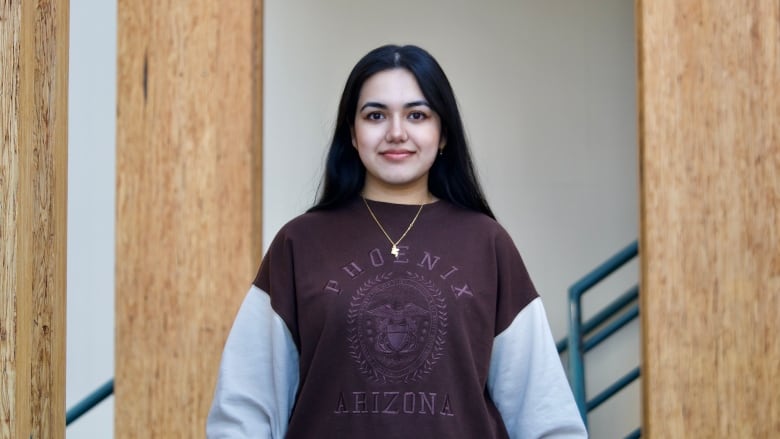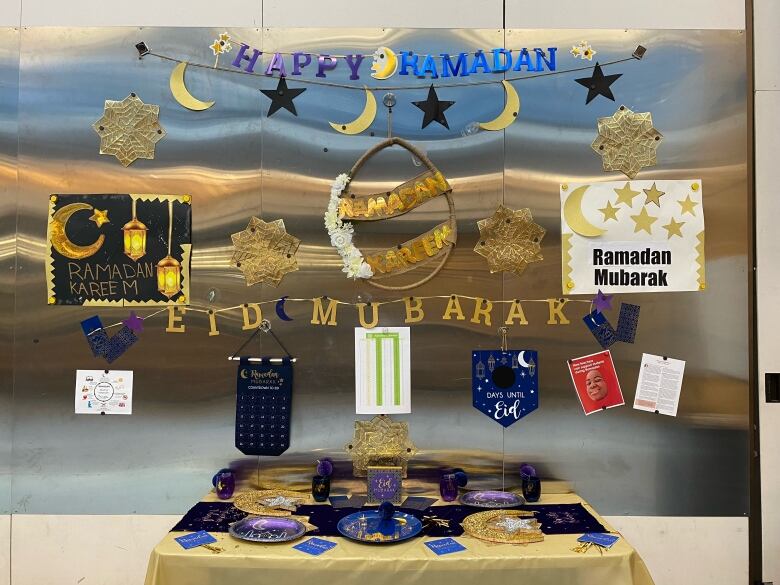How more B.C. schools are supporting Muslim students during Ramadan
Staff and students driving campaigns and awareness to boost inclusivity, understanding

As many Muslim students brave the school day while fasting as they observe Ramadan this month, some schools are making an effort to be more inclusive of their practices.
During Ramadan — the ninth month of the Islamic lunar calendar, when it's believed Allah revealed Islam's holy book, the Qur'an, to the prophet Muhammad — observant Muslims take part in extra prayer and abstain from food and drink, including water, from sunrise to sunset.
Afrin Begum, who is now a second-year student at the University of Northern B.C., said going to high school during Ramadan was an overall positive experience because she had supportive friends and teachers — but it wasn't easy.
"I felt like I was on my own, in a way, because I'm doing it on my own," she said.
"In my age group there weren't a lot of Muslims that I grew up with. There was a lack of education from people who are not Muslim, not understanding why I'm doing it and for that reason … it was a struggle."
She said people often judged her and assumed she was forced to participate in fasting, rather than acknowledging that she chose to.

But things are changing, school officials say.
Beth Applewhite, district principal of diversity and inclusion in Burnaby, B.C., said elementary and high schools are actively celebrating Ramadan more than ever.
"We're seeing students driving campaigns and awareness and celebratory posters, announcements. We're seeing librarians doing displays," she said.
Applewhite says some schools in B.C., particularly those with larger Muslim student populations, have done assemblies and dinners for students and their families.
"It makes the students feel safer, it makes them feel more welcome, it makes them feel they can be their true authentic selves at school," Applewhite said.
Grade 11 student Zainab Khan, whose Surrey high school set up a Ramadan display for the month, said just seeing decorations and information about her culture made her feel included.
"I was really overwhelmed with happiness," she said.
"It just felt really nice to be part of the school in some way, you know?"
She said students started asking questions about what happens during Ramadan, and it felt good to talk about why she fasts during this time.
One of the people behind that display was Annie Ohana, Indigenous department head at Khan's school. She said the idea came about when some Muslim students asked if they could have a prayer room set up for Ramadan.
"The idea was, we can empower youth through their own identities," she said.
They tried to make the display accessible, and put it front and centre when people entered the building to get people thinking and talking about Ramadan.
"We have a calendar, we have the prayer time, we even have suggestions ... written by a Muslim colleague in terms of what we can do during Ramadan as teachers to make our place more inclusive for that celebration," Ohana said.
Ohana acknowledges that it takes more than a poster to make a space truly welcoming for all students.
"We really need to make sure that we connect with our students, whoever they may be, whatever they represent, and to really ask them, 'How would you feel seen?'"
Begum encourages teachers and school staff to reach out to their local Muslim community to learn more about both Ramadan and Islam as a whole.
"This should be implemented into the education system — not just our religion, all religions," she said.
"Students, they learn a lot in elementary and high school, and they leave with that knowledge."